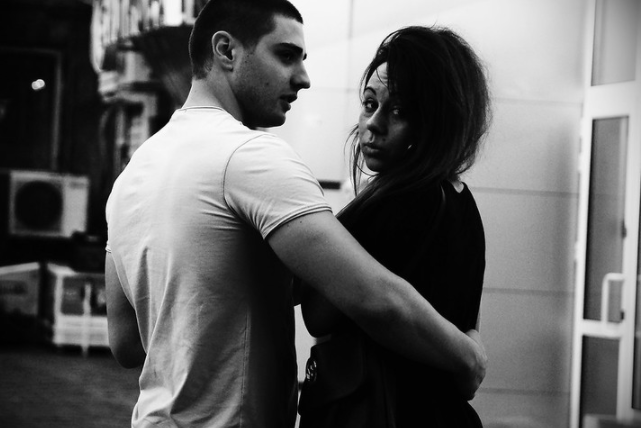Why is it so hard to leave someone who is unhealthy for you?
This is the question that constantly throws me into turmoil as my thoughts start rushing through my head, my overthinking superpower kicking into high gear.
Tonight this question was put in perspective for me—by my sweet and beautiful seven-year-old daughter.
“Mommy,” she began in a small voice, belying her anxious thoughts, “Why is it so hard not sucking my thumb? I said I was ready, but what if I wasn’t really ready to stop?” Tears were close to spilling down her cheeks as she shared herself in a way that showed how stuck she was in worry.
Since the day she found her thumb, my oldest daughter has been a champion thumb sucker. She had such a powerful suction on her thumb (and while nursing…) that I nicknamed her my little Hoover. Although to be more accurate, I should have dubbed her a Dyson. With her doll held close to her face and her thumb deep in her mouth, my child would look around with large brown eyes and self-soothe her anxiety at that moment.
Last week, she made the courageous decision to stop sucking her thumb. When she told me of her decision, I was quite surprised. I was fairly certain that I had the child who would go to college still sucking her thumb. I had already tried relieving her of the habit years ago by using that horrific-tasting liquid, sticker charts, rewards—you name it. Nothing panned out. Do you know why my efforts failed?
Because it had to be her decision to stop. Only when she was ready to commit to a hard and long battle would she succeed. And based on how much she loved her thumb, there would be many bumps along the way.
She had thought about it since she was five, although the habit was hard to break and, to be fair, her need to suck was greater than her need to find new coping skills. So her thumb stayed put.
And there is where the gold is—growth begins when the need for better outweighs the desire for familiar. Dr. Henry Cloud says, “We change our behavior when the pain of staying the same becomes greater than the pain of changing. Consequences give us the pain that motivates us to change.”
Transfer the thought of a young child saying goodbye to her best coping strategy to that of a young woman (or man) saying goodbye to someone who has been their abuser and hero interchangeably. Can you try to imagine the heartache? Can you try to feel the pull of that love, all those good-time memories flooding your brain while pushing aside all the crap you had to withstand to earn that love? It’s shocking how easily we can forget the unmentionable consequences of our horrible days when under siege from our happy memories.
That’s what loving an abuser is like; handling all the tough sh*t the toxic partner doles out that keeps you courageously holding it together just to have another chance to earn back their love. Receiving love from a partner who also takes it away when you fail to meet his expectations has such a stronghold on your emotional and psychological wellness. It is incredibly difficult to close the door on that relationship and walk away. And often, it is difficult to keep your hand off the doorknob when hopeful feelings of what if he’s changed begin circling…like a hawk over its prey.
Even though you must slam that door so hard it rattles the hinges. And until you are well enough to withstand their presence, it’s probably a good idea to lock it behind you, in case you have days when you jiggle the handle.
My daughter’s thumb-sucking has altered the shape of her embouchure and caused moderate speech problems. While her therapist is confident she will overcome her speech impediment through daily practice, she also acknowledges that putting a stop to the thumb sucking would greatly hasten her progress. Her thumb has been out for one week, and I can already hear slight improvements in some of her speech. Unfortunately, it’s too late to avoid costly orthodonture work.
For victims of domestic violence (remember, DV also includes emotional and psychological abuse as well as physical and sexual), it is often too late to avoid developing unhealthy coping mechanisms. And that is okay—these strategies help us survive day-to-day combat and keep us on our guard during the honeymoon phases. You know, just in case.
But I want to bring us back to the most courageous part of our life: realizing when you are ready for something different. Something that doesn’t hurt. Something that doesn’t make you walk on eggshells. Something that is consistently gentle, consistently accepting, and consistently loving.
When you are ready to find yourself again, you’ll know. When you are ready to be loved better, you will know. When you are so sick of living with the same cycles and unhealthy behaviors that you will no longer be able to convince yourself that it wasn’t that bad…you will know.
And that means you will start the process of becoming a better you, regardless of what happens to your partner. They don’t need to stop—you need to start.
~


 Share on bsky
Share on bsky





Read 1 comment and reply